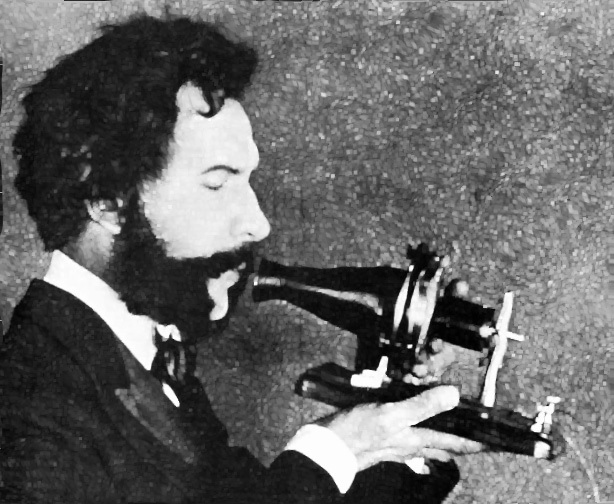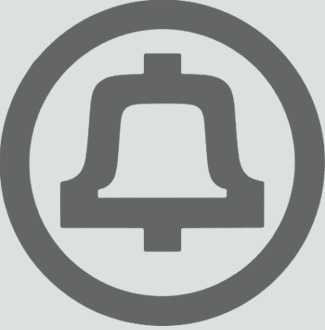Telecom Informer
by The Prophet
Hello, and greetings from the Central Office!
It's been an interesting few months. Things have settled down into a reasonable rhythm in bringing our new Central Office online and, with the project schedule on track, I've been able to enjoy a little personal travel around Asia. My most recent trip was to the DMZ, one of the world's most dangerous places.
In 2005, I was one of the first Americans to visit the DMZ from the north as a tourist, so it was interesting to see it from the southern side a few years later. The experience visiting from the north or south is largely the same, each side detailing a litany of grievances that have not been resolved in nearly two generations, showing off weapons seized from the other side, and claiming their soldiers will protect you from the opposite side's aggressions.
The two Koreas are like perpetually quarreling siblings, with long-held grudges over disagreements that ceased to really matter decades ago but are still unforgotten, each side staring at the other over the world's biggest spite fence. The only difference is that an angry shouting match has the very real possibility of escalating into World War III. This is, presumably, why Bill Clinton called the DMZ "The scariest place on Earth."
Despite being technically still at war, separated from North Korea by an uneasy armistice and thousands of troops, South Korea is an incredibly modern society. On my last visit to Japan, I found myself wondering where all of the new technology went. Having visited Seoul, the answer is obvious: Korea.
It's not often anymore that I find myself completely marveling at technology that I've never seen before, but in South Korea you'll find that this is commonplace. From enormous displays at bus stops that provide multi-touch enabled satellite maps you can use for trip planning to ultramodern mobile phones, Korean society is at the leading edge of technology.
This is particularly evident in telecommunications nowhere more evidenced than mobile phones.
Like Japan, South Korea doesn't support GSM. Only flavors of CDMA are supported, both W-CDMA (which many AT&T and T-Mobile USA world phones support) and 1xRTT/1xEV-DO (used by Sprint, Verizon, and US Cellular in the U.S.). If you carry a GSM-only phone, you can rent an unlocked W-CDMA-capable handset at the airport for about $3 per day (plus a hefty deposit), and if your carrier allows you to roam on a South Korean carrier, you can simply insert your home SIM card.
Strangely enough, though, I couldn't find a local SIM card for sale to use in my W-CDMA-capable HTC phone. You can only buy one along with a prepaid mobile phone. Foreigners are only able to buy prepaid handsets, and are not allowed a monthly subscription.
I carry a W-CDMA-capable handset and my Chinese carrier has a roaming agreement with both SK Telecom and Korea Telecom, so roaming was seamless and surprisingly cheap. Outgoing calls within South Korea cost less than 10 cents per minute, with incoming calls costing about double that (owing to the charge for delivering the calls long distance from China to South Korea).
Data roaming was still expensive, at a rate of about $1.50 per megabyte, and text messages cost about 10 cents each. All features worked seamlessly, and Chinese government restrictions on accessing certain websites were enforced. When roaming in Korea with a Chinese phone, your data is still forwarded through a gateway in China, so your mobile web browsing is subject to Chinese laws and regulations.
North Korea uses a GSM system, but a side effect of the jammers used to block radio and television signals coming from South Korea is blocking of mobile phone signals from the north. Technically, South Korean W-CDMA handsets are backwards compatible, but cannot roam on the system. In North Korea, W-CDMA and CDMA-capable handsets are not available which effectively prevents any attempts to use the South Korean system (and presumably, North Korean users won't be allowed to roam anyway).
Unlike in Japan, smartphones have made tremendous headway in Korea.
They are tremendously popular; most people I saw with a mobile phone across two visits to Seoul were carrying one. Approximately 60 percent of smartphones are powered by Android, according to KCC (the Korean equivalent of the FCC) statistics. Local brands Samsung and LG are the most popular, probably due to their superior Korean-language support and localized features.
As in many countries, local search and application providers have the most popular applications, with Naver (a local ISP and online services provider) leading the pack. Google, however, is making headway with its search engine on mobile phones (although not on traditional browsers), largely owing to its integration with the Android platform. So is Facebook, although like Google, it seems more popular on mobile phones than on PC browsers. One smartphone platform that is practically missing - as in Japan - is the iPhone. You do see people with iPhones, but they are more expensive and less popular than the heavily localized Korean brands.
Despite the adoption of smartphones with high-resolution cameras, QR codes seem not to have caught on at all.
You see them everywhere in Japan, and they are growing in popularity in more developed parts of China. However, I only saw one QR code across two visits to South Korea, and it was on a Korean Airlines boarding pass. This is somewhat surprising, given the low-cost, high-quality, and high speed of data services in Korea. Downloads run at 2 Mbps and with W-CDMA, you can download your email and make a phone call at the same time. This is important, because Koreans, unlike Japanese, make relatively more phone calls and send relatively fewer text messages.
One particularly interesting - and growing - area of mobile telephony in South Korea is mobile payments.
SK Telecom has run a proprietary system for the past few years, but there are only limited places you can pay. Recently, they made an agreement with Japanese carriers KDDI and SoftBank to develop and roll out a system called NFC. This system is based on an RFID-enabled SIM card, which broadcasts at 13.56 MHz.
The billing platform is developed by Visa, and is called payWave. This allows up to eight credit cards to be linked to a single mobile phone account. Additionally, the platform allows for the application that nobody seems to want but never seems to go away - mobile coupons.
Your carrier can use your GPS coordinates to send you coupon spam, and these can be stored on your NFC SIM to be presented wirelessly at merchants along with your payment credentials. Providers are very tight-lipped about the technology and there is very little published research on the platform, but they have publicly stated that it is based on "ISO/IEC 7816 or ISO/IEC 14443 standards." The SK Telecom system is branded "T Smart Pay." Time will show just how smart it is.
Innovation in telecommunications is not limited to wireless phones.
Internet service in South Korea is based on fiber to the home, and runs at speeds exceeding 40 Mbps. It's incredibly fast, very inexpensive, and South Korea leads the world in broadband penetration with over 70 percent of homes subscribing. Of course, you can also still use a payphone if you want to.
These are located nearly everywhere in quantities far exceeding the U.S. Most take cards, some take coins and cards, and many new phones (yes, I said new payphones - South Korea is still innovating here) allow paying with a T-Money card. T-Money is a prepaid RFID payments card operated by the local transit authority.
In addition to payphones, subways, and buses, you can also pay for taxis and even pay for items at many retailers with the T-Money card. Oh, and did I mention the technology platform? The whole system runs on the infamous MIFARE Classic RFID platform. Is T Smart Pay built for easy integration? I don't know, but RFID hackers may find this an interesting question.
And with that, it's time to draw this issue of "The Telecom Informer" to a close. Have a safe summer, and I'll see you at Photosynthesis Festival and DEFCON 19!

